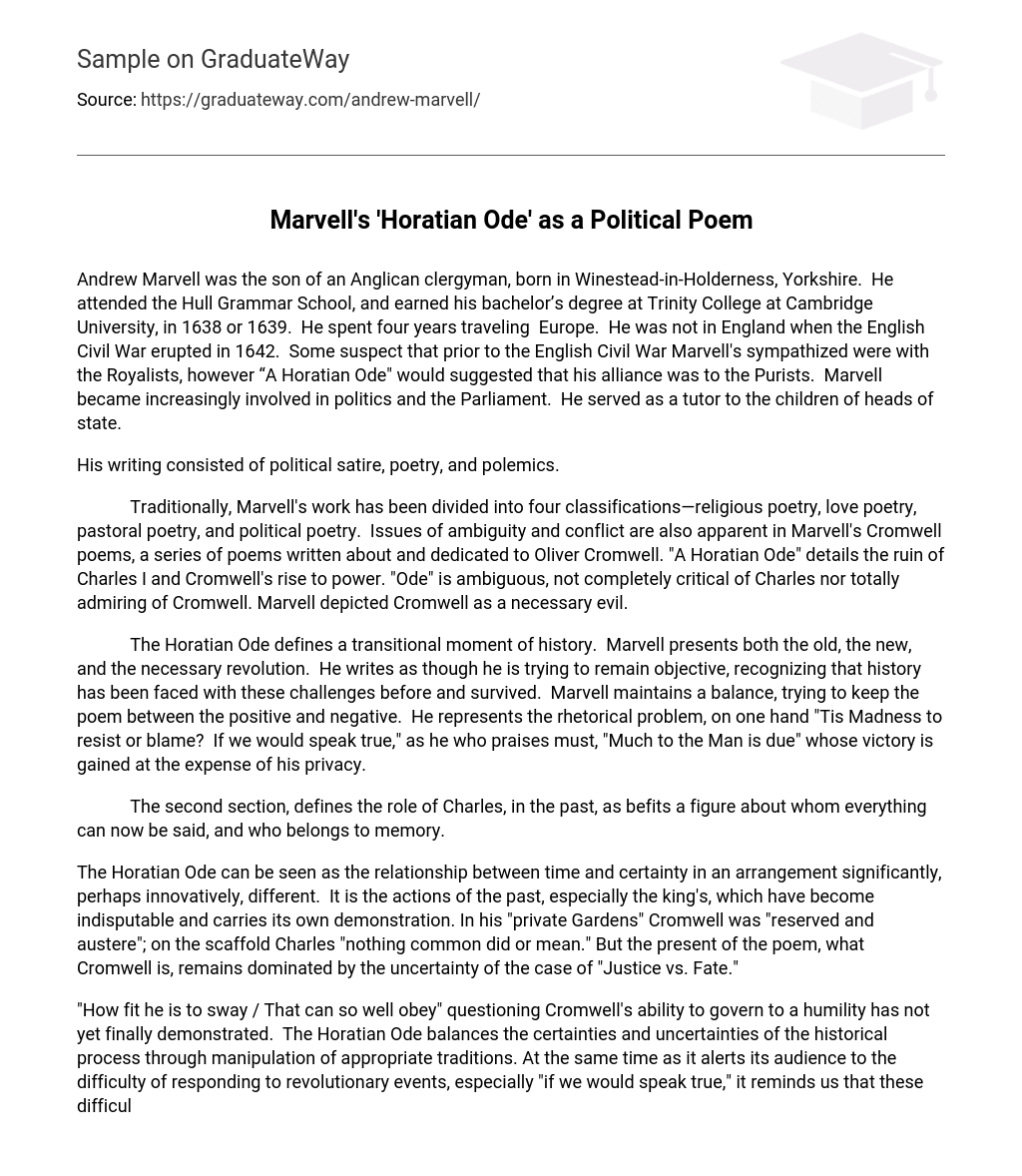Andrew Marvell was the son of an Anglican clergyman, born in Winestead-in-Holderness, Yorkshire. He attended the Hull Grammar School, and earned his bachelor’s degree at Trinity College at Cambridge University, in 1638 or 1639. He spent four years traveling Europe. He was not in England when the English Civil War erupted in 1642. Some suspect that prior to the English Civil War Marvell’s sympathized were with the Royalists, however “A Horatian Ode” would suggested that his alliance was to the Purists. Marvell became increasingly involved in politics and the Parliament. He served as a tutor to the children of heads of state.
His writing consisted of political satire, poetry, and polemics.
Traditionally, Marvell’s work has been divided into four classifications—religious poetry, love poetry, pastoral poetry, and political poetry. Issues of ambiguity and conflict are also apparent in Marvell’s Cromwell poems, a series of poems written about and dedicated to Oliver Cromwell. “A Horatian Ode” details the ruin of Charles I and Cromwell’s rise to power. “Ode” is ambiguous, not completely critical of Charles nor totally admiring of Cromwell. Marvell depicted Cromwell as a necessary evil.
The Horatian Ode defines a transitional moment of history. Marvell presents both the old, the new, and the necessary revolution. He writes as though he is trying to remain objective, recognizing that history has been faced with these challenges before and survived. Marvell maintains a balance, trying to keep the poem between the positive and negative. He represents the rhetorical problem, on one hand “Tis Madness to resist or blame? If we would speak true,” as he who praises must, “Much to the Man is due” whose victory is gained at the expense of his privacy.
The second section, defines the role of Charles, in the past, as befits a figure about whom everything can now be said, and who belongs to memory.
The Horatian Ode can be seen as the relationship between time and certainty in an arrangement significantly, perhaps innovatively, different. It is the actions of the past, especially the king’s, which have become indisputable and carries its own demonstration. In his “private Gardens” Cromwell was “reserved and austere”; on the scaffold Charles “nothing common did or mean.” But the present of the poem, what Cromwell is, remains dominated by the uncertainty of the case of “Justice vs. Fate.”
“How fit he is to sway / That can so well obey” questioning Cromwell’s ability to govern to a humility has not yet finally demonstrated. The Horatian Ode balances the certainties and uncertainties of the historical process through manipulation of appropriate traditions. At the same time as it alerts its audience to the difficulty of responding to revolutionary events, especially “if we would speak true,” it reminds us that these difficulties are not unprecedented. History repeats itself.





